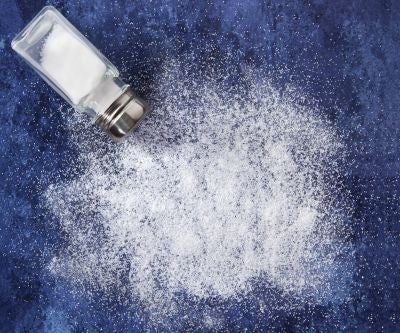A new study published May 4 suggests that low-salt diets don't prevent high blood pressure but actually increase the risk of heart attacks or strokes. But experts say to take the findings with a grain of salt.
Published in the Journal of the American Medical Association, the Belgian study enlisted 3,681 European men and women for an eight-year evaluation of salt's effect on their cardiovascular health. Subjects with the lowest sodium excretion (which is a good measure of sodium intake) were 56 percent more likely to have died from cardiovascular disease than those with the highest sodium excretion. Also, researchers found that sodium intake had no effect on whether or not the subjects developed high blood pressure.
Researchers say the observational study is more suggestive than conclusive, and don't recommend dietary changes. Meanwhile officials from America's CDC criticize the study as being too small and for using subjects who were too young (subjects were mostly in their 40s). There is a wealth of studies contradicting the findings, including a 2010 German study that found that people who consumed more than six grams of dietary sodium per day increased their risks of cardiovascular disease and high blood pressure.
"These are startling findings," P.J. Skerrett of Harvard University writes of the new study on the Harvard Health Blog. "If true, they would undercut major programs by the U.S. government to reduce Americans' intake of salt - the main source of sodium - from prepared and processed foods and at home."
Before picking up the salt shaker, Skerrett recommends that to keep your blood pressure in check, be sure to exercise, lose weight, and maintain a healthy diet. Losing just five percent of body weight can cut your risks of developing high blood pressure, he writes, and eating more fruits, veggies, whole grains, and low-fat dairy foods can keep your heart healthy. In addition, trim back animal fats, sweets, and sugary beverages.
Access the study: http://jama.ama-assn.org/content/305/17/1777
Subscribe to Independent Premium to bookmark this article
Want to bookmark your favourite articles and stories to read or reference later? Start your Independent Premium subscription today.


Join our commenting forum
Join thought-provoking conversations, follow other Independent readers and see their replies